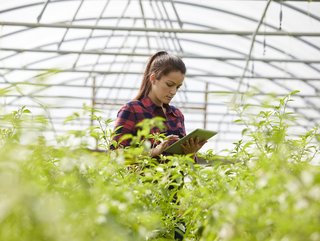A watershed moment: feeding the world with AgriTech

Never before has efficient and sustainable agriculture been so important – with geopolitics and climate change disrupting food supplies, technology is now vital to feeding the world.
Geopolitical conflicts compound the impact of climate change-induced challenges, as increasingly unpredictable weather leaves farmers’ livelihoods in the balance.
So, as we look to new ways of bolstering food supplies, enhancing supply chain resilience and turning challenges into opportunities, AgriTech has become infinitely more exciting.
Adapting out of a crisis - AI’s role in future-proofing the global farming industry
Some farmers are already enhancing their yield with drone footage and AI driven insights.
Since the dawn of time, humans have developed technology to improve their ability to grow crops from the pitch-fork to the plough. Now, as we face a watershed moment, we are once again embracing the human ingenuity that sustains us.
The good news is that the AgriTech market is booming and is projected to reach $41,172 million by 2027 – a 12.1% growth from 2020 to 2027.
We stand on the precipice of the data era, on the cusp of technological revolution with the convergence of 5G connectivity, the proliferation of intelligent edge devices and smart data management services. This is particularly crucial for the agriculture industry.
Data-driven technologies stand to enhance resource efficiencies, logistics and precision farming, and thereby build greater resilience into our food supply chain.
The use cases are endless – and, when it comes to the application of intelligent devices, prospects for innovation are high. Whether they are minimising water waste, assessing the health of livestock or monitoring crops from the skies, they impact the bottom line for farmers and the ability to feed our growing global populations.
With global warming reducing the habitable spaces left on our planet, smart farming is more vital than ever.
Managing data, improving connectivity and a new era for agriculture
Enabling these transformative use cases and nourishing the seeds of innovation requires a bedrock of data infrastructure and layers of data management.
Our ability to feed the world increasingly rests in the hands of technologists, as much as farmers.
Ensuring that the connectivity in these rural areas is strong enough to sustain these aways-on intelligent devices, which require edge computing for real-time insights, is only the first challenge. One that will be alleviated by the rollout of private 5G networks.
But, once these devices are connected, tracking the growth of crops, the emotions of the chickens and irrigation water levels round the clock will mean that a massive amount of data is being produced, processed, stored and actioned.
The internet of things (IoT) is one of the fastest growing data segments, when it comes to data creation and replication.
Managing this incoming data deluge will be crucial to gaining the much-needed insights. Ensuring simplified, automated data environments that reduce complexities is key here.
Mastering data-driven technologies is surely the biggest challenge of them all for the agriculture industry – but with the help of trusted technology partners, this can be solved. Enabling the world’s farmers to adapt to increasingly volatile environments and keeping bellies full will be a collaborative effort. It will ultimately bring together deep agricultural knowledge with the exciting possibilities harboured by technology, to turbocharge a new era in agriculture.
With precision farming, we can truly augment the earth’s resources and human ingenuity to feed the world.
But, there’s no doubt that this will require more investments – AgriTech is about to have its day. Supporting more sustainable practices, developing the required expertise and creating powerful partnerships that pave the way for a more nutritious future requires a cross industry effort.
Public sector support is also crucial, as farms transform and food security becomes a matter of national security.
We must work together to do more than keep up with these challenges – to stay ahead and avert another food crisis.






